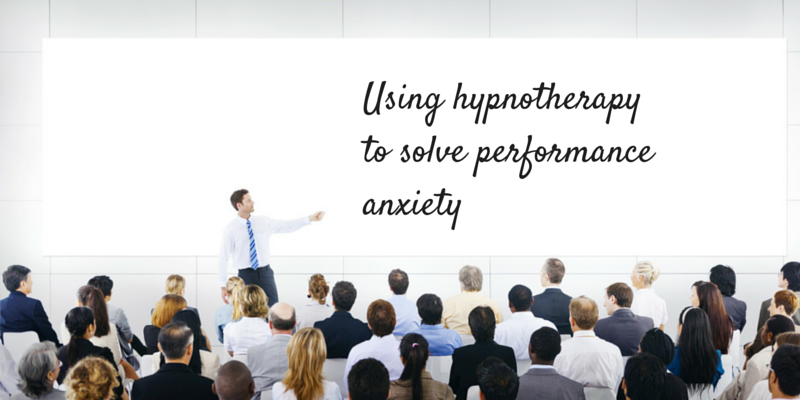Hypnotherapy and Dementia
Hypnotherapy and Dementia
Hope for the afflicted and the affected
Dementia is an all-too-common condition, and when it encroaches upon a person’s life, it changes everything. Suddenly, the ability to function fully is ripped from the afflicted individual, and in many cases, dementia gets compounded by depression, anxiety, and grief. The Alzheimer’s Association estimates that in the United States, more than 6 million people are living with some form of Alzheimer’s.
Altzheimer’s is not the only means by which dementia can develop. Vascular dementia, the result of oxygen deprivation arising from poor circulation or TIA’s, can also cause a person to lose memory, become disoriented, and maybe even lose any resemblance to the person she or he might have been before.
In all cases, dementia, which is defined by the CDC as “the impaired ability to remember, think, or make decisions that interferes with doing everyday activities,” sends life on an unplanned, uncertain, and disconcerting course. And, because dementia is a progressive condition, it is often hard to assess or understand where a person might be in the process.
Hypnotherapy as hope for dementia patients
One of the most disturbing parts of being affected by dementia is the anxiety that comes with not being able to remember names, people, or something as seemingly simple as the way back home. A 2013 article posted in the Wellness blog recounts a study that showed how hypnotherapy could be used to comfort dementia patients.
The relaxation experienced in the process of hypnosis helped to alleviate anxiety. The act of bringing the activity of the conscious and unconscious minds into awareness assists in focus and concentration. The process of acceptance and self-love achieved through affirmation encourages greater socialization and better motivation. In summation, it has been found that, while nothing can “cure” dementia, hypnotherapy makes it easier to live with, and for those who do live with it to continue to engage in daily living activities.
Hypnotherapy as a source of comfort to family and caretakers.
If living with dementia is difficult for the person experiencing loss of full mental capacity, it is nearly as painful for those who are close to them. When someone we love is affected by dementia, it is like we lose them a little bit at a time. It can be quite confounding for caretakers to know when something a loved one is talking about is true, or merely a mixed-up perception.
In her early nineties, my mother fell into a state such as this due to vascular dementia. I can remember her telling me stories about caretakers treating her cruelly, and my having to investigate to find out if what she was perceiving was true. I was relieved to find out that her stories were not always accurate, but I was left with the realization that something terrible was happening to her. Before long, she was accusing me of “locking her up” in the “school” where she was being taken care of with “a bunch of other bad kids,” which was in fact a very highly rated and well-appointed skilled nursing facility.
It can be painful and difficult to accept the loss of a loved one to the state of mind dementia brings about. Still, there are ways of looking at it that make it somewhat easier. In my case, although the etymology of the words differs, I began to see a relationship between dementia and the idea of people living in “another dimension.” Whether by “madness,” the root meaning of dementia, or “measure,” the root of dimension, it was a fact that before too long, my mom did not always live in the same world I did. This new reality took a lot of getting used to, as it does for anyone watching a relative change in this way.
Could one way of dealing with a relative with dementia be to realize that in some respects, they are moving from one “dimension” to the next, and that in rare lucid moments, can come back again? Perhaps. In any case, it’s useful to know, as caretakers, that we are suffering along with our loved ones. From noticing they’re not the same to falling into the fear that the same can soon happen to us, we are stuck on a wild roller coaster ride of emotion.
Fortunately, hypnotherapy is here to help caretakers, too. Although I don’t know of a specific study that proves it, I do know that the work that we do with Heart-Centered Hypnotherapy, Psychodrama, and Breathwork can be extremely helpful to caretakers to those living with dementia. If you’re new to Wellness, and would like to have a more detailed description of what a Heart-Centered Hypnotherapy session is like, please read this blog post from February 23, 2022.
Whether Heart-Centered Hypnotherapy is new to you or not, it’s good to know that caretakers who experience these following issues can experience healing through hypnotherapy.
Past trauma involving the person being cared for.
Often, the person we must care for could have played a part in a traumatic experience from earlier in our lives. In hypnotherapy, we can go back, express the feelings we had toward that person in a safe place, and resolve them by replacing old, negative beliefs about ourselves with new and affirmative ones.
Titrating anxiety and fear.
Getting in touch with emotions means we also have the opportunity to notice them, and comfort ourselves when needed. The process of titration is an excellent tool we can use in the moment, any time we must grapple with the chaotic worlds our loved ones inhabit.
Releasing anger and sadness
Hypnotherapy allows us to gain access to the uncomfortable, yet natural, emotions we experience when dealing with a relative who lives with dementia. Releasing anger, whether it’s toward the person we care for, other relatives who don’t bother to help, or even God as we understand God to be, in this safe and sacred place, is extremely healing.
The same goes for sadness. When we are allowed to shed tears freely, we can let go of this painful emotion and arrest the negative effects it can have on our bodies. We can also learn, through regression, where the source of these feelings might be, perhaps in a situation from our past that is quite similar. Sorting the experiences and separating them makes it easier to handle life in the moment.
Focus on self-love and self-care
Heart-Centered Hypnotherapy puts a strong focus on reframing old ideas and creating new affirmations that are self-affirming and uplifting. Each session includes a healing portion, where the client spends time giving the inner child love and all the affirmation the inner child needs. Parts of the client that split off at the time of trauma, such as trust, courage, and self-esteem, are often retrieved and restored, and the ability to accept the power of healing is integrated into many sessions.
Heart-Centered Hypnotherapy is a powerful tool that can be put to excellent use helping the millions of people who are living with and who are affected by dementia in all its forms. Because hypnotherapy delves into the unconscious, it assists people in identifying their issues quickly, and resolving them on a much deeper level than is possible with talk therapy alone.
Learn hypnotherapy and change lives
Knowing that the number of people who need help dealing with dementia is growing, wouldn’t you like to learn Heart-Centered Hypnotherapy, so you can help them? The Hypnotherapy Training and Certification Program at The Wellness Institute gets you the skills you need in just six days! You’ll study hypnosis and its various applications, see demonstrations, and actually participate in sessions. You will get two opportunities to be a therapist, client, and observer during the training, under the close supervision of experienced Heart-Centered Hypnotherapists.
The journey continues with our Advanced Internship, PTI Leadership Training, and Mentorship Program. CEU credit for all our classes is available, depending on the regulations governing licensure in your state. The Wellness Institute provides a cutting-edge skill set that will allow you to expand your career as you help people who truly need your compassion, capability, and kindness.
Don’t wait - classes are filling up fast.








